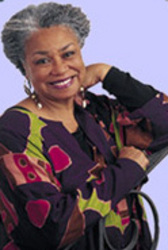
Sharon Bell Mathis (born February 26, 1937) U.S. children's / young adult book writer - Teacup Full of Roses (1972)
Read about Sharon Bell Mathis here
Sharon Bell Mathis reads from her book
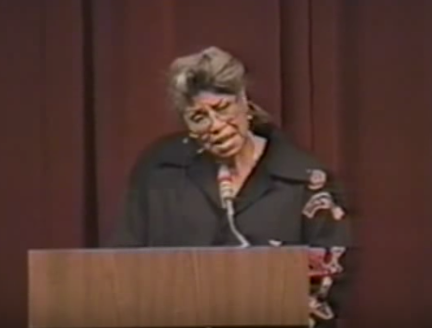 The Hundred Penny Box
The Hundred Penny Box
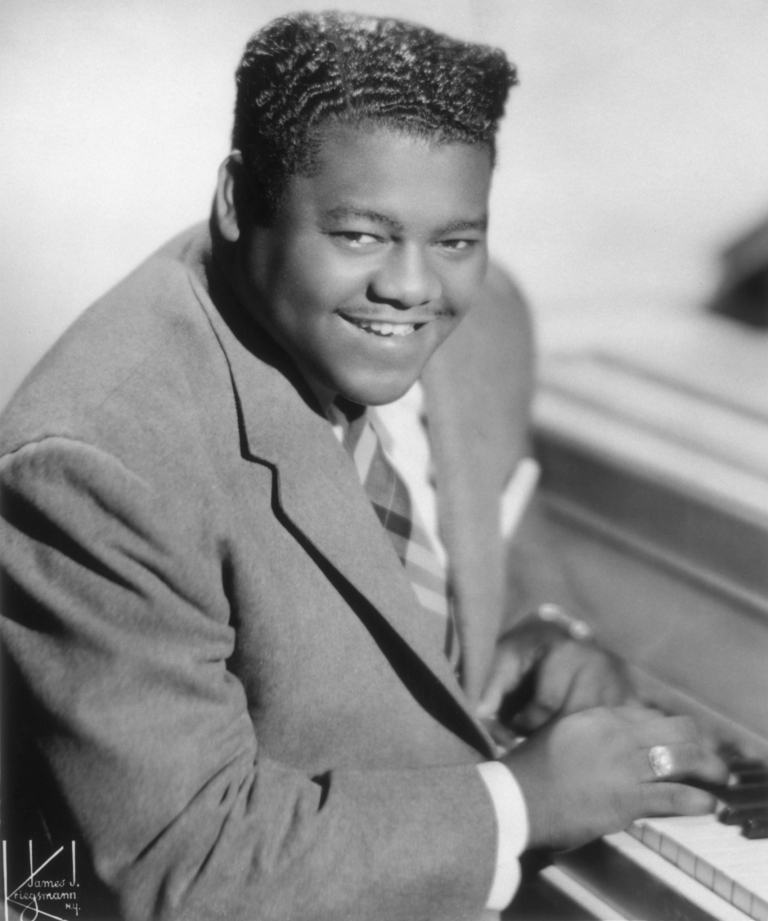
Fats Domino (Antoine Domino) (born February 26, 1928) U.S. singer/songwriter – The Fat Man (1949 – co-written with Dave Bartholomew)
Read the biography of Fats Domino here
Watch Fats Domino perform his first hit, The Fat Man,
 here
here
The Fat Man
They call, they call me the fat man
Cause I weigh two hundred pounds
All the girls they love me
Cause I know my way around
I was standin, I was standin on the corner
Of Rampart and Canal
I was watchin, watchin
Watchin all those creole gals
I'm goin, I'm goin, goin away
And I'm goin, goin to stay
Cause women and a bad life
They're taking this soul away.
Fats Domino performs Blue Monday here
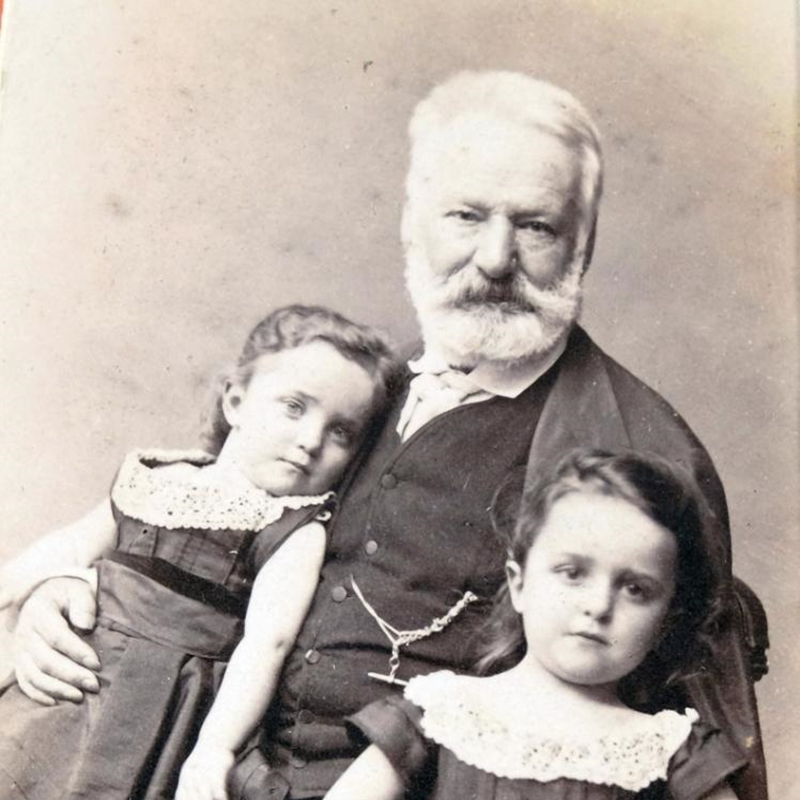
Victor Hugo (born February 26, 1802) French novelist, playwright, poet – Les Misérables
Read about Victor Hugo here
Excerpt from Hugo's romance novel, The Hunchback of Notre Dame
"What dost thou want, Djali?" said the gypsy, hastily, as though suddenly awakened.
"She is hungry," said Gringoire, charmed to enter into conversation. Esmeralda began to crumble some bread, which Djali ate gracefully from the hollow of her hand. Moreover, Gringoire did not give her time to resume her revery. He hazarded a delicate question.
"So you don't want me for your husband?"
The young girl looked at him intently, and said, "No."
"For your lover?" went on Gringoire.
She pouted, and replied, "No."
"For your friend?" pursued Gringoire.
She gazed fixedly at him again, and said, after a momentary reflection, "Perhaps." This "perhaps," so dear to philosophers, emboldened Gringoire.
"Do you know what friendship is?" he asked.
"Yes," replied the gypsy; "it is to be brother and sister; two souls which touch without mingling, two fingers on one hand."
"And love?" pursued Gringoire.
"Oh! love!" said she, and her voice trembled, and her eye beamed. "That is to be two and to be but one. A man and a woman mingled into one angel. It is heaven."
Read online The Hunchback of Notre Dame
See what Victor Hugo's house in Paris was like (now a museum)
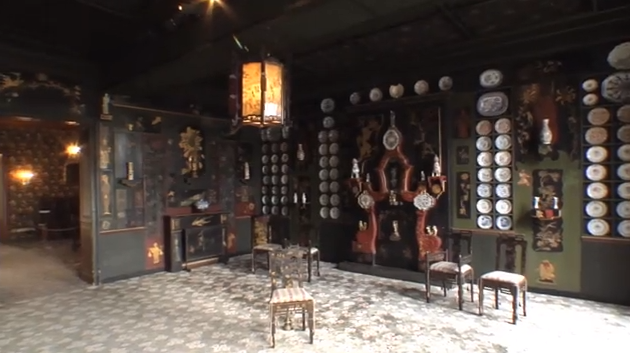 here
here
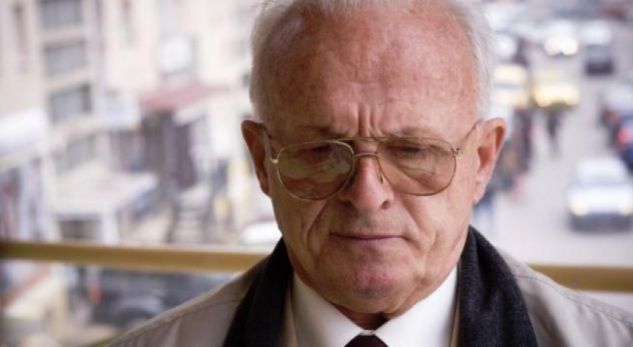
Adem Demaçi (born February 26, 1936) Albanian human rights activist, novelist, politician
Read about Adem Demaçi here
Read about Demaçi through an interview with his biographer, Shkëlzen Gashi, here
Shkëlzen Gashi: There are a few moments from the end of WWII up until the first time he was arrested in 1958 that had a crucial influence on Demaçi’s political formation, but here I will mention three that I consider to be the most important.
The first moment was immediately following the end of WWII, while Demaçi was studying at the eight-year long gymnasium in Prishtina. Yugoslav partisans had dug a hole, known today as “Strelishte,” in which they threw the dead bodies of NDSH [Albanian National Democratic Movement, popular anti-communist insurrection] activists after executing them by gun squad. Demaçi told me about how the sound of these executions often woke him up during nighttime.
The second moment is in 1953, when Yugoslavia’s President Josip Broz Tito signed a gentlemen’s agreement with Turkey’s minister for foreign affairs, Mehmet Köprülü, to ensure the deportation of Albanians from Yugoslavia to Turkey. When I asked Demaçi what moment the most difficult moment in his life, he told me: “the deportation of just about all of my friends to Turkey during the 50s.”
The third moment is in winter 1955-56, when the Yugoslav regime began the campaign of weapon collection in Kosovo. Demaçi spoke about how “people were taken from their homes and mistreated, tied up and dragged in the freezing cold, until their skin fell like feathers from a chicken.
Demaçi was arrested for the first time on November 19, 1958, in the offices of the daily newspaper “Rilindja,” where he worked as editor of world literature. ... In truth, Demaçi’s open statements and writings against the injustices done against Albanians, as well as the idea that was conveyed by his book, “Snakes of blood,” had incited Yugoslav authorities to arrest him.
If there is one thing about Demaçi that fascinates, it is particularly this distinction that he makes between the Serbian people and the Serbian political class. Although aware of the terror that was being committed against Albanians, in public appearances he often used phrases such as “our brothers, the Serbian people” or “the heroic Serbian people,” because he believed that the Serbian people were manipulated by the people in power, and was against generalizations that equated all Serbs to the political class that was in power. Demaçi expressed these positions publicly because he wanted to halt efforts of revenge, and because he believed that this best contributed to Kosovo’s interests. Moreover, he believed in human rights and he was therefore adopted as a “prisoner of conscience” by prestigious human rights organization Amnesty International and won, among others, three prestigious international awards: the Sakharov Prize for Freedom of Thought that was given by the European Parliament, the Special Prize for Peace against Racism and Xenophobia that was given by the Club of University Rectors in Madrid and the Leo Eitinger Prize for Human Rights that was given by Oslo University.

Jela Krečič born February 26, 1979 Slovenian novelist and journalist (None Like Her / Ni Druge – 2016)
Jela Krečič GoodReads page
Read Krecic's 2013 interview with Julian Assange
Jela Krecic discusses her novel None Like Her
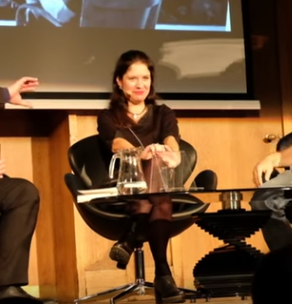 here
here